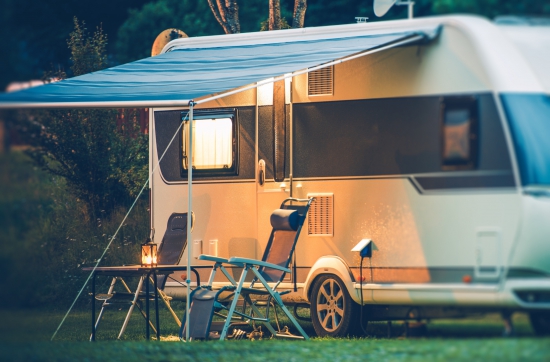Travel looks a lot different this summer with the desire to “social distance” and get away from large crowds. You might find yourself getting your camper or trailer ready and hitting the road to finally view some new scenery.
Whether you have been hauling large trailers for years, or you’re about to embark on the first family vacation with a new camper, towing isn’t something to be taken lightly. Preparation is key before you hit the road.
Do the research before you tow.
- The vehicle should be properly equipped and rated for the trailer you would like to tow. Review the owner’s manual of the towing vehicle to find the towing capacity and hitch rating. This can also easily be found by a quick Google search.
- Find the trailer weight of the trailer you are planning on towing. Make sure this does not exceed the manufacturer’s recommended towing capacity of the towing vehicle.
Too often, people try to tow a trailer that exceeds the vehicle weight rating. This can create a dangerous situation as the towing vehicle may not be able to accelerate, brake or turn in a safe manner. Not to mention the extra weight can be damaging to the mechanical systems of the towing vehicle.
Now that you’re set, some pre-trip preparation tips:
- Make sure the trailer is connected properly. This includes:
- Using the proper sized hitch/ball for the trailer.
- Safety chains are in good condition and connected. Chains are preferred over cables. Cables can corrode easily and not be as durable as chains.
- All light hookups are connected and trailer lights are working. This includes brake lights that are activated when the brake is applied.
- Options of trailer brakes are in use if the vehicle has such options.
- Check tires and wheel bearings on the trailer. One of the most common ways damage can occur is a blown tire or overheated bearing on trailer wheels. Tires should be in good condition and set to the proper pressure. Wheel bearings should always have fresh grease and lubrication.
- Always have a spare tire and tools for the trailer wheels. You may need a different jack than what is in the towing vehicle, so prepare for what you may need if a tire is to fail.
- Load the trailer properly. This is often overlooked. Do not put too much weight forward or too much on the back of the trailer. This will affect braking and turning ability. If the trailer does not look level, rearrange some of the load.
With a little planning and preparation, along with allowing some extra time for travel; using your vehicle with a trailer will become much less stressful. Contact your Nodak Insurance agent if you have questions about purchasing a trailer and what coverages you may need.

